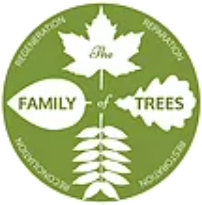It is wonderful to be proud of the place you live. People in small towns, suburban communities, and urban neighborhoods all over Minnesota and western Wisconsin are banding together to make their communities more livable and sustainable. It is fun and also requires patience.
Getting Started
- Meet other like-minded people: host a film screening at your library or coop or by contacting environmental groups to find members or chapters in your area; afors.org, minnesotaikes.org, minnesota.sierraclub.org, and nextstep.state.mn.us/member_dir.cfm are great places to start.
- Learn about sustainability: start a study group or organize a workshop to educate your leadership team about sustainability (see the recommended books below).
- Get organized: your leadership team can meet informally, become incorporated, become a temporary city task force, and/or ask your city council to form an ongoing sustainability commission with a clear mandate and staffing.
- Learn from other communities: meet volunteers from adjacent communities who are helping their city to go green at fall and spring Metro Sustainability Roundtables in the north, south, east, and west metro hosted by the Alliance for Sustainability (afors.org).
- Green your city operations: encourage your city staff to create an interdepartmental “green team” to track CO2 emissions (iclei.org/co2), plan energy efficiency improvements to city buildings (energy.mn.gov), and green the community’s infrastructure (mngreensteps.org).
- Green your community: engage your chamber, neighborhoods, congregations, schools, service clubs, and utilities to support businesses and residents who conserve energy, water, and other resources and make energy efficiency improvements to their businesses and homes; then start working toward a larger renewable energy project (for inspiration, visit the following websites: afors.org, mngreensteps.org, mncee.org, mnenergysmart.com, mnenergychallenge.org, cleanenergyresourceteams.org).
- Support wider changes: cities and towns are depending on wise state (mepartnership.org), federal (1sky.org), and international (350.org) policies to reduce their CO2 footprints and become more sustainable; get involved and let policymakers know your stance on environmental issues.
Doorways to Sustainability
- Support local businesses: volunteers in Hudson, Wisconsin, are encouraging residents to buy local; volunteers in Duluth are helping “early adopter” businesses go green (learn more at sustainabletwinports.org and greenamericatoday.org/cabn/).
- Fight global warming: more than 50 cities in Minnesota have signed the U.S. Conference of Mayors Climate Protection Agreement (usmayors.org/climateprotection/agreement.htm), have cut their energy costs, and will broaden their efforts by joining Minnesota GreenStep Cities (mngreensteps.org).
- Ease the energy transition: volunteers in Northfield and many towns and neighborhoods are preparing to thrive as low-cost oil decreases (visit centerforsustainableliving.org and transitiontowns.org for more information).
- Eat local: neighbors are building community and supporting local farmers through local farmers’ markets (landstewardshipproject.org/farmers_markets.html) and community gardens (gardeningmatters.org).
- • Take the Natural Step: community volunteers, businesses, and city and county staff in Madison, Lacrosse, Hudson, Stillwater, Duluth, Burnsville, Edina, and many other communities are using the Natural Step framework (naturalstep.org) to create a shared long-term vision and sustainability action plan for their local government and community.
Everything is Infrastructure!
Cities and towns are responsible for building, maintaining, and passing along to future generations the infrastructure of the community. Our streets, trees, homes, businesses, appliances, and civic institutions are all part of our common legacy. When changes are being made to any of these elements they should be done to enhance their energy, water, and resource performance and to expand individual and community well-being. Olympia, Washington, has created a great worksheet to facilitate long term thinking to create balanced decisions (olympiawa.gov/community/sustainability/sustainability-and-sam-a-decision-making-tool.aspx).
The Natural Step for Communities by Sarah James Torbjorn Lahti. New Society Publishers 2004.
The Transition Handbook: From oil dependency to local resilience by Rob Hopkins. Chelsea Green 2008.
Alliance for Sustainability
Minneapolis, Minnesota
612-331-1099
afors.org







